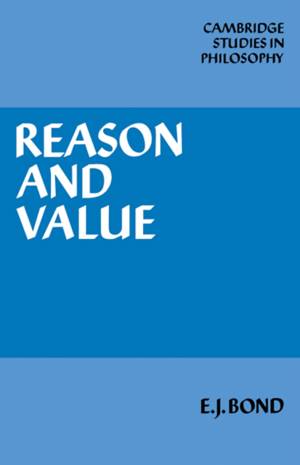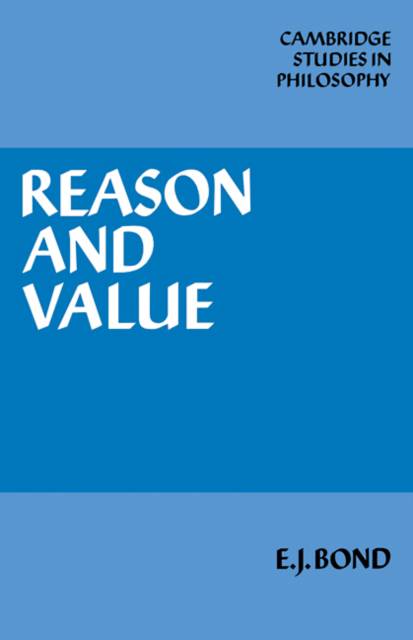
- Afhalen na 1 uur in een winkel met voorraad
- Gratis thuislevering in België vanaf € 30
- Ruim aanbod met 7 miljoen producten
- Afhalen na 1 uur in een winkel met voorraad
- Gratis thuislevering in België vanaf € 30
- Ruim aanbod met 7 miljoen producten
Zoeken
Omschrijving
The relations between reason, motivation and value present problems which, though ancient, remain intractable. If values are objective and rational how can they move us and if they are dependent on our contingent desires how can they be rational? E. J. Bond makes a bold attack on this dilemma. The widespread view among philosophers today is that judgements contain an irreducible element of personal commitment. To this Professor Bond proposes an account of values as objective and value judgements as true or false, employing a distinction between grounding and motivating reasons to establish their connection with action. He defines and tests his position against a number of recent theories, providing in the process forceful criticism of Williams, Wiggins, Foot, Narveson and Nagel, among others. A distinctive contribution to the subject, it will stimulate interest and worthwhile debate among philosophers, while also serving as an introduction to this vital topic.
Specificaties
Betrokkenen
- Auteur(s):
- Uitgeverij:
Inhoud
- Aantal bladzijden:
- 180
- Taal:
- Engels
- Reeks:
Eigenschappen
- Productcode (EAN):
- 9780521270793
- Verschijningsdatum:
- 31/03/1983
- Uitvoering:
- Paperback
- Formaat:
- Trade paperback (VS)
- Afmetingen:
- 140 mm x 216 mm
- Gewicht:
- 235 g

Alleen bij Standaard Boekhandel
+ 121 punten op je klantenkaart van Standaard Boekhandel
Beoordelingen
We publiceren alleen reviews die voldoen aan de voorwaarden voor reviews. Bekijk onze voorwaarden voor reviews.











